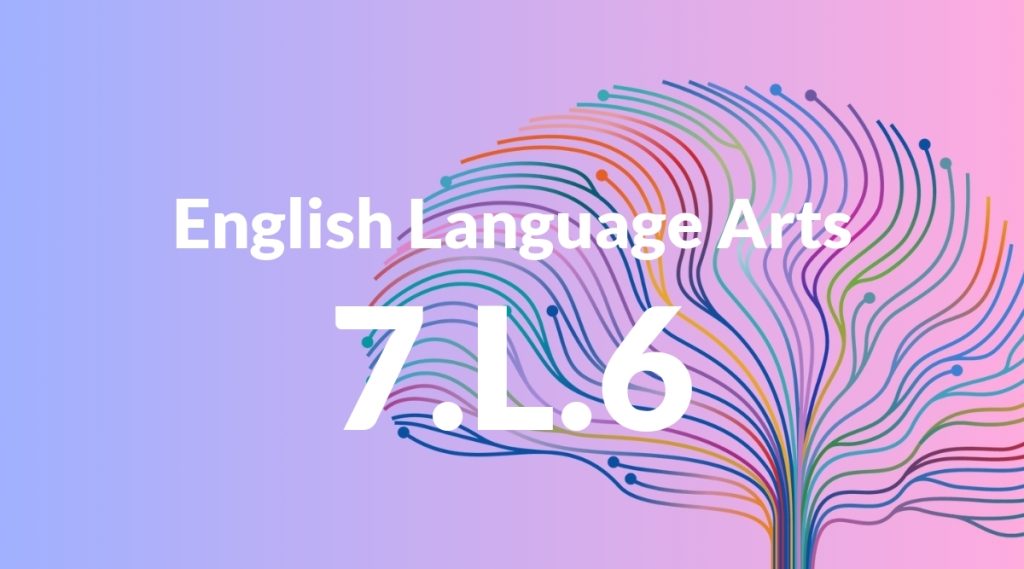Standard: 7.L.6 – Acquire and use accurately grade-appropriate general academic and domain-specific words and phrases; gather vocabulary knowledge when considering a word or phrase important to comprehension or expression.
Grade level: Grade 7
Subject: English Language Arts
Domain: Language
Teacher Overview
This standard emphasizes the importance of acquiring and accurately using grade-appropriate vocabulary, both general academic and domain-specific. Mastery of this standard is crucial as it supports comprehension and expression across all subjects, enabling students to engage more deeply with complex texts and articulate their thoughts more effectively. Students should have a foundational understanding of common academic vocabulary and the ability to use context clues to infer the meaning of unfamiliar words.
After mastering this standard, students will be able to use a broader and more precise vocabulary in both their written and oral communications, enhancing their ability to express complex ideas clearly and effectively.
Common Misconception 1
A common misconception is that students only need to learn vocabulary words that are explicitly taught in class. This is incorrect because vocabulary acquisition is an ongoing process that extends beyond the classroom.
Intervention 1
Encourage students to read a variety of texts and engage in discussions that expose them to new words. Provide opportunities for students to encounter and use new vocabulary in different contexts.
Common Misconception 2
Another misconception is that once a word is learned, it does not need to be revisited. This is incorrect because vocabulary knowledge can fade without regular practice and reinforcement.
Intervention 2
Implement regular vocabulary review sessions and encourage the use of new words in various contexts. Use games, flashcards, and writing prompts to keep vocabulary practice engaging.
Prerequisite Knowledge
Students should have a basic understanding of common vocabulary and phrases used in academic settings, as well as the ability to use context clues to infer the meaning of new words.
Subsequent Knowledge
Students will be able to use a broader and more precise vocabulary in both their written and oral communications, enhancing their ability to express complex ideas clearly and effectively.
Instructional Activities
- Vocabulary journals
- Contextual vocabulary exercises
- Word mapping activities
- Interactive vocabulary games
- Reading comprehension exercises with focus on vocabulary




